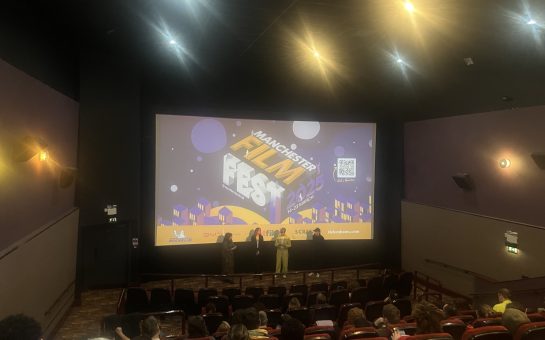By David Keane, watching at Cornerhouse, Manchester
Hype – it’s a funny old thing.
Despite avoiding every trailer, every radio spot, every review, as a Drive fan the feeling of expectation was still palpable once I had the movie stubs in my hand.
So you’re bound to ask: how can Only God Forgives not disappoint? Because it certainly does.
Nicholas Winding Refn has written and directed an exceptionally bold and bloody tale of revenge and redemption that takes the viewer on a dark journey into the seedy and dangerous underbelly of Bangkok, where the world of underground Thai boxing clashes with drugs, prostitution and murder.
Interesting subject matter, for sure. The story gets even grittier.
American brothers Billy and Julian (Ryan Gosling) use their Muay Thai gym as a front for their drug pushing. Billy’s sordid urges eventually lead to his untimely demise when he his beaten to death by the father of a young prostitute he has killed.
Enter the brothers’ drug-lord mother Crystal (Kristen Scott Thomas) – who arrives in town wanting to see heads roll for the death of her first born. Yet her own lust for revenge ends up colliding head-on with an evangelical, bloodletting cop, also known as the ‘Angel of Vengeance’.
Sounds pretty full-on, doesn’t it?
Bizarrely, however, the rampant story seems to take a backseat while Refn indulges in long, moody shots of Gosling sat about under neon lighting with not much happening. Scenes with Gosling saying very little and staring into the middle distance are hardly unheard of, but Only God Forgives certainly stretches these to the limit.
The film is beautifully shot, rich with luscious visuals and bold colours.
Over this sits a most consuming, disturbing soundtrack that is one of the most compelling aspects of the whole movie – careering between terrifying rumbling soundscapes, eerie ambience and classic Thai karaoke ballads, often sang in full by the cast.
All this overblown style is reminiscent of Drive. But what Drive delivered in quiet character development, unerring tension and themes of love and loss, loyalty and loneliness, Only God Forgives seems to lack – or at least not significantly develop.
Gosling is often great at not saying very much but conveying a character through his moody but striking screen presence, and Refn was equally excellent at drawing this out of him in Drive.
Yet Gosling’s character Julian is given so few lines in Only God Forgives that it’s near impossible for the audience to decide who he is. Yes, he makes some bold decisions when it counts, but when the setting is as brash and violent as this, these moments fail to make the impact they did in Drive.
Refn’s movies are always splattered with bloodshed, usually coming intermittently in sudden spurts leaving the audience on tenterhooks of when the next will come. The Pusher series, Bronson and Drive all use sudden violence to taunt the viewer and leave them in a state of constant unease.
Only God Forgives has some truly eye-watering moments of torture, slaying and the grisly aftermath – so much so that the violence becomes an overly intrinsic part of the film, almost to its detriment. In fact, we spend the slower, down-time moments of the movie waiting for the next eruption of violence. It becomes expected.
This all paints Only God Forgives in a very poor light, which is unfair. It is a without doubt a challenging film, strangely intriguing and daring.
Yet, where Drive managed to combine style and substance into a muscular movie packing punch, Only God Forgives lets the style run rampant leaving the finished film feeling unsatisfying and, dare I say it, empty.
But then, despite all our best efforts not to succumb to it, perhaps that’s just hype for you.
Only God Forgives is now showing at Manchester’s Cornerhouse, see here for more information or to book.
Image courtesy of Gaumont / Le Pacte via YouTube, with thanks.
For more on this story and many others, follow Mancunian Matters on Twitter and Facebook.



